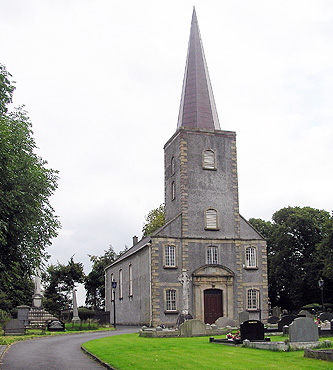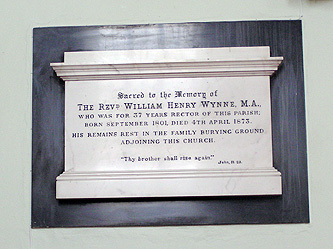Although Birmingham favored an independent Ireland, his novels at that time also showed the conflict which he underwent regarding Nationalism and Unionism. For instance, in Hyacinth, the protagonist gave up on the Nationalist Movement after he had an argument with Canon Beecher about Irish politics. It is likely that Birmingham also had some sympathies with Unionism due to his Unionist family background.
His conflict regarding Nationalism and Unionism is represented more vividly in Benedict Kavanagh and The Northern Iron, both of which were published in 1907.
Benedict Kavanagh is the sequel of Hyacinth. The novel’s title derives from the name of the protagonist and that of his father. The father Benedict is a radical Nationalist and Member of Parliament. Nevertheless he falls in love with a woman from a Protestant Unionist family and marries her. A son is born and he is given the same name as his father. The father Benedict is a close friend of a Protestant Unionist, Canon Beecher. Despite their different creeds, they are attracted to one another because both of them have strong wills and try to work for the peace and freedom of Ireland. Canon Hamilton is the Church of Ireland rector of a fictional town, Killard. It is supposed that the town represents Moira, Co. Down, and the Canon is modeled on Birmingham’s maternal grandfather, William Wynne (1801-1873). Moira is located southwest of Belfast and today it takes about thirty minutes to get there by train. Wynne was the rector of Moira for 37 years from 1836 until 1873, the year when he died. A memorial plaque dedicated to him is put on the wall of the Church of Ireland in this town.
 Church of Ireland at Moira
Church of Ireland at Moira Memorial plaque dedicated to William Wynne
Memorial plaque dedicated to William WynneBenedict’s mother dies of illness and the father Benedict also dies in a Dublin lodging. When the father dies, he leaves his son in the care of Canon Hamilton. The Canon adopts Benedict as his son and raises him to be an ardent Unionist. Subsequently Benedict comes to detest Nationalists, especially those who fought against the British landlords in the Land War in the late 19th century. He regards them as burglars and murderers. But, when Canon Hamilton dies, he leaves a letter to Benedict to uncover the truth. Benedict finds that his father was a passionate Nationalist. Benedict is profoundly shocked and realizes that, despite their different creeds, his father and the Canon were close friends because both of them loved Ireland so much that they earnestly hoped for the peace and freedom of the country. Then Benedict wonders which is right, Nationalism or Unionism, and asks to himself what he will be able to do to serve Ireland. He goes to Hyacinth who has come home from England as a clergyman for advice. Hyacinth, who also tried to serve Ireland but failed, says to him, “It seems to me easier to know Jesus than to serve Ireland. Yet I think that they who know Him will be best able to serve Ireland. And there are some, a few, one or two here and there, who want to serve. But the way of service is obscure. Who will show us any good for Ireland? It is not easy to serve her.”
Hearing Hyacinth’s words, Benedict looks at the full moon shining over the bay and thinks about what will become of Ireland in the future.
The Northern Iron is a historical novel about the United Irishmen’s uprising in 1798. This Irish rebellion against Britain, commonly known as the 1798 Rebellion, was led by a young Protestant lawyer of British descent, Wolf Tone (1763-1798). Catholics and Presbyterians, who are a Protestant denomination, formed the United Irishmen and waged a war against Britain, but they were defeated. Wolf Tone was seized by the British troops, but killed himself before being executed. Today Tone is regarded as the father of Nationalist movements for independence.
The setting of this novel is Antrim Coast in Northern Ireland in the late 18th century. The protagonist is Neal Ward, son of a Presbyterian clergyman, Micah Ward, who is fighting for the realization of an independent Ireland. Many Presbyterians are immigrants from Scotland. They and Irish Catholics are persecuted by Anglicans, the main Protestant denomination. Next to the Ward family live an Anglican nobleman, Lord Dunseveric, and his family. Lord Dunseveric is content with the Ireland of his day, which is under Britain’s rule but granted a dominion status.
His son Maurice and his daughter Una are close friends with Neal though their fathers have different political creeds. When they go out for fishing, they meet Neal’s uncle, Donald Ward, who has come home from America. Being a Presbyterian, he emigrated to America to escape from persecution. He fought against Britain in the American War of Independence and won. Now he has returned home to fight against Britain for the realization of an independent Ireland. Neal is thrilled when he hears Donald talking about what great contributions the Presbyterians from Ulster have made in the American War of Independence. The novel’s title The Northern Iron derives from a phrase in the Bible and represents the Presbyterians fighting in the 1798 Rebellion with strong iron wills.
Lord Dunseveric warns Neal and his father against joining the rebellion because their names are already included in the list of the suspects. Lord Dunseveric, Neal’s father and Donald argue their political views. Lord Dunseveric regards the Ireland of his day which is granted a dominion status as an independent country and warns them that, if they join the rebellion, Ireland’s commerce and industry, then reviving under the care of the dominion parliament, will be destroyed and the country will be fouled with the corpses. Lord Dunseveric says to them, “If you fail – and you must fail – you will fling the country into the arms of England. Our gentry will be terrified, our commons will be cowed. Designing Englishmen will make an easy prey of us. They will take from us even the hard-earned measure of independence we already possess. We shall become, and we shall remain, a contemptible province of their Empire instead of a sovereign and independent nation.”
“The hard-earned measure of independence”, which Lord Dunseveric talks about, represents the independence of the Irish Parliament from the English Parliament achieved by an Anglican member of Parliament, Henry Grattan (1746-1821). Although Ireland was granted a dominion status, the Parliament was dominated by Anglican members. Anglicans made up only one-thirds of the population of Ireland, and two-thirds of it were dissenters like Catholics and Presbyterians. They still suffered from discrimination and persecution.
Neal’s father refutes Lord Dunseveric and says, “You care for Ireland, and you mean by Ireland the powers and privileges of a class. I care for Ireland, but I mean Ireland, not for certain noblemen and gentlemen, but Ireland for the Irish people, for the poor as well as the rich, for the Protestant, Dissenter, and Roman Catholic alike.”
Referring to the American War of Independence for which he fought and the French Revolution, Donald Ward says, “It was the people that carried the day in America. They carried the day in France. What’s to hinder us from carrying the day in Ireland?”
Those words by Lord Dunseveric, Neal’s father and Donald may represent Birmingham’s conflict regarding Nationalism and Unionism. Like Neal’s father, Birmingham supported Nationalism and hoped earnestly for an independent Ireland where every people would have equal liberty and peace. Like Donald Ward, he wondered why it was impossible to realize. But, at the same time, Lord Dunseveric’s warning to Neal’s father and Donald sounds more reasonable and convincing than their fanatical faith in the rebellion. His warning is also a reminder of the words by the protagonist’s father in Hyacinth, “Will you be sure to know the good side from the bad, the Captain from the enemy?”
Benedict Kavanagh and The Northern Iron advance one step on from The Seething Pot and Hyacinth in the sense that they represent Birmingham’s conflict regarding Nationalism and Unionism with more detached and convincing tones.
| << BACK | NEXT >> |